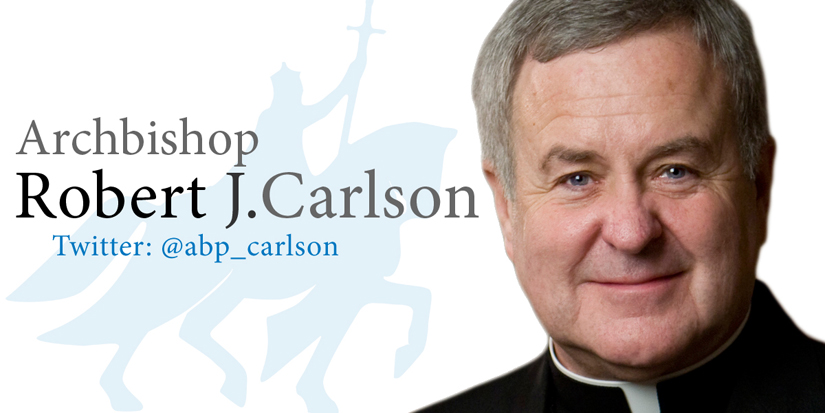BEFORE THE CROSS | St. Paul countered ‘fake news’ in his time, too

The Mass readings this week are from the First Letter of St. Paul to Timothy. St. Paul warned Timothy about the Gnostics, a group of people who claimed to have a special knowledge contrary to the faith. Timothy was to restrain their false teaching, and preserve the purity of Church teaching against their doctrines.
We have our own version of that situation today.
Some people today defend the belief that there’s no such thing as right and wrong — until something offends them. They claim that we need to practice tolerance but they don’t tolerate things with which they disagree. They say that all claims to know the truth are just power games, but somehow their claim to know that isn’t just another power game.
The words of St. Paul to Timothy apply well to them. They have “turned to meaningless talk, wanting to be teachers of the law, but without understanding either what they are saying or what they assert with such assurance” (1 Timothy 1:6-7).
Anyone who claims that there’s no truth is denying Jesus who is the Way, the Truth and the Life (John 14: 6). But they’re also contradicting themselves by saying there is no truth. Anyone who claims that there’s no right and wrong is denying the Ten Commandments and also contradicting themselves by saying it’s wrong to teach that there is an objective right and wrong. Yes, their claims are contrary to Catholic faith. But the falsehood of their positions is clear in merely human terms, as well. The attempt to build a society on such ideas is the attempt to build on sand rather than solid rock (Matthew 7:24-27). And that has consequences.
So we read and watch the news and express our outrage at some of the things that are happening — as we should! Everywhere we look, the dignity of human beings — God’s children, our brothers and sisters — is being undermined in shocking ways.
But let’s be honest: There’s a way in which our outrage is impotent. It’s absorbed by a cultural void in which outrage is nothing more than the expression of a personal preference rather than a response to objective right and wrong. Sometimes we undermine our own objections by couching them in culturally acceptable terms of calls for more “tolerance.” We need to go deeper, and fashion our response from a more adequate foundation.
How can we address our situation? St. Paul’s advice to Timothy provides an excellent template.
First, we need to act with integrity. We need to provide outstanding examples of virtue in our own lives before we presume to instruct others. St. Paul addresses this at length with Timothy.
But our words matter, too. Words matter because they shape our actions, our laws, and our culture. And, just as St. Paul advised Timothy, we need to get back to some basics with our words. Some things are true and some things are false, and we need to say that. There is objective right and wrong, and we need to say that. Some things ought not to be tolerated, and we need to say that.
The Catholic faith calls us to help people pick up the broken pieces of their lives when things fall apart. We’re experts at that. And right now we’re doing it with our culture, too.
But at some point, with individuals, we step back and ask how we can prevent things from falling apart in the first place. We’re experts at that kind of preventive intervention, too. Maybe it’s time to apply the same approach to our culture.
RELATED ARTICLE(S):FRENTE A LA CRUZ | En su tiempo San Pablo también contrarrestó “noticias falsas”
The Mass readings this week are from the First Letter of St. Paul to Timothy. St. Paul warned Timothy about the Gnostics, a group of people who claimed to have … BEFORE THE CROSS | St. Paul countered ‘fake news’ in his time, too
Subscribe to Read All St. Louis Review Stories
All readers receive 5 stories to read free per month. After that, readers will need to be logged in.
If you are currently receive the St. Louis Review at your home or office, please send your name and address (and subscriber id if you know it) to subscriptions@stlouisreview.com to get your login information.
If you are not currently a subscriber to the St. Louis Review, please contact subscriptions@stlouisreview.com for information on how to subscribe.



